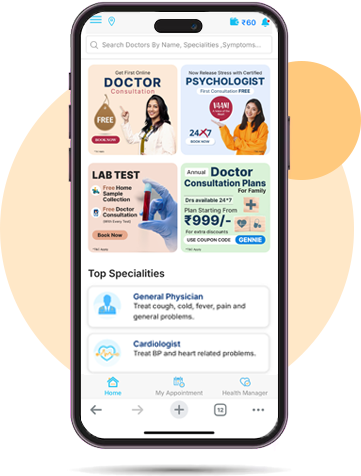The Link Between Acne and Your Teen's Face Map
March 1 , 2024

Acne is a common skin condition that affects teenagers worldwide, often causing distress and impacting self-esteem. However, did you know that where your acne appears on your face could provide insights into its underlying causes? This phenomenon is known as acne face mapping, a practice rooted in traditional Chinese medicine. Understanding acne face mapping can empower teens to take better care of their skin and make informed choices about treatment with best dermatologist in India. Let's delve into the details!
What is Acne Face Mapping?
- Acne face mapping is a holistic approach that links the location of acne breakouts to specific organs or systems within the body.
- According to traditional Chinese medicine, different areas of the face are connected to various internal organs and bodily functions.
The Face Map: Zones and Corresponding Organs
- Forehead: Linked to the digestive system and bladder. Breakouts here may indicate issues with digestion, dehydration, or stress.
- T-Zone (Nose and Surrounding Area): Associated with the liver and gallbladder. Excessive oiliness or acne in this area might signal liver congestion or poor diet.
- Cheeks: Connected to the respiratory system and lungs. Acne on the cheeks could indicate allergies, smoking, or pollution exposure.
- Chin and Jawline: Linked to hormonal fluctuations, particularly in females. Hormonal acne often manifests in these areas due to changes in estrogen and testosterone levels.
Understanding Acne Types and Causes
- Whiteheads and Blackheads: Result from clogged pores due to excess oil and dead skin cells. Common in the T-zone.
- Papules and Pustules: Inflamed pimples caused by bacteria buildup in pores. Often found in the cheeks and chin.
- Cysts and Nodules: Deep, painful lesions caused by hormonal imbalances or genetic factors. Typically appear along the jawline.
Tips for Managing Acne Based on Face Mapping
- Forehead: Stay hydrated, eat a balanced diet rich in fiber, and manage stress through relaxation techniques.
- T-Zone: Limit consumption of greasy and processed foods, detoxify the liver with herbal teas, and maintain a consistent skincare routine.
- Cheeks: Protect skin from pollutants, avoid touching your face frequently, and use non-comedogenic skincare products.
- Chin and Jawline: Balance hormone levels through diet, exercise, and stress management. Consider seeking medical advice for hormonal acne treatment options.
When to Seek Professional Help
- Determined or severe acne that does not respond to over-the-counter treatments.
- Acne accompanied by other symptoms such as fever, fatigue, or sudden weight changes.
- Emotional distress or self-esteem issues related to acne breakouts.
Conclusion:
Acne face mapping offers a unique perspective on understanding and managing acne for teenagers. By paying attention to where acne appears on their face, teens can gain valuable insights into potential underlying causes and take proactive steps towards clearer, healthier skin. Remember, skincare is not one-size-fits-all, and seeking professional guidance can help tailor a treatment plan suited to individual needs. With knowledge and proper care, teens can navigate their acne journey with confidence and grace. If they're struggling with persistent or severe acne then it’s right decision to consult with a dermatologist on Students Healthcare App Health Gennie that’s have dermatologist near me through out all over India. So don’t forget to book appointment with skin specialist.
Disclaimer :
The information on this blog is not a substitute for any professional medical diagnosis or treatment. The blog contains text, images or graphics are solely for informational purpose. Before implementing the information mentioned above, seek the advice of a professional doctor regarding any doubt or question you may have about the medical condition or treatment. Also, take the advice of a professional health care provider before making changes in your health care routine.











